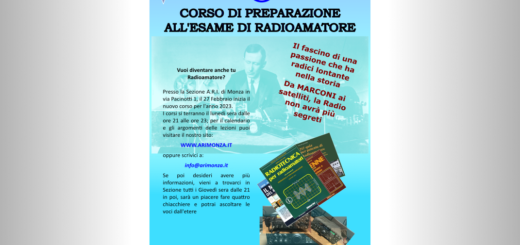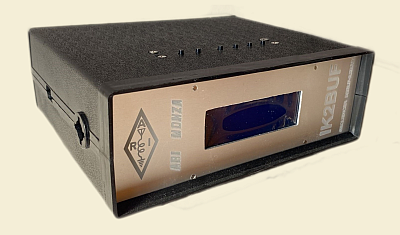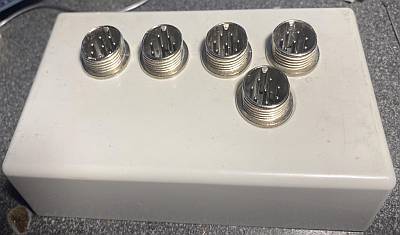contatto 8 ottobre 2019 14.29 UTC
ARISS school contact planned for Saralbe, France
International Space Station school contact has been planned for Luca Parmitano KF5KDP with participants at College Robert Doisneau, Sarralbe, France.
The event is planned Tuesday October 8, 2019. It is scheduled to begin at approximately 14:29 UTC, which is 16:29 CEST.
The contact will be a direct operated by F6KFT. The downlink signals will be audible in parts of Europe on 145.800 MHz FM.
School information
As the name suggests, Sarralbe was formed at the confluence of the valleys of the Saar and the Albe, two rivers that go down, the first from the Vosges foothills, the second from the near area of the Moselle ponds. Sarralbe is located between Strasbourg an Metz. Our city, main canton town, is a member of the “Albe and Lakes” Local Council Community. The city territory covers a total area of 27 square kilometers and it is between 206 and 262 meters high.
Its inhabitants are called the Sarralbenois and Sarralbenoises. At the last census, there were 4645 inhabitants in Sarralbe.
In College Robert Doisenau, our middle school, we are 500 pupils and we are 9h graders.
In the last two years, we have launched two weather balloons, with 3 cameras, in the atmosphere that have climbed up to 30 km altitude to get as close as possible to the ISS station!
At the same time, with amateur radio club F6KT, we often practice using Morse language.
Questions:
1. Leonie (3eme): Avez-vous peur lorsque vous faites une sortie dans l’espace?
2. Lisa (3eme): Que mangez-vous?
3. Claire (3eme): Combien de temps travaillez-vous chaque jour?
4. Florence (3eme): Avez-vous constate des changements physiques a cause de l’absence de gravite?
5. Alycia (3eme): Est il difficile de vivre ensemble dans la station ISS?
6. Lise (3eme): Avez vous assez d’espace, de pieces pour vivre dans la station ISS?
7. Tom (3eme): Faites vous du sport dans la station et lequel?
8. Lena (3eme): Quels details de la Terre voyez vous depuis l’espace?
9. Ilhan (3eme): Quelle tache est la plus compliquee a realiser en apesanteur?
10. Beiza (3eme): Pourquoi avez vous choisi ce metier?
11. Ines (3eme): Est-ce votre premier voyage dans l’espace?
12. Julien (3eme): Combien de temps avez vous mis pour vous preparer à cette mission?
13. Samuel (3eme): Comment dormez vous?
14. Camille (3eme): Combien de temps allez vous rester dans la station?
15. Elisa (3eme): Quelles sont vos sensations quand vous quittez la Terre ?
16. Eda-Nur (3eme): Comment et a quelle frequence communiquez vous avec vos proches?
17. Anthony (3eme): Est ce que vous vous ennuyez parfois dans la station?
18. Erwan (3eme): Quelle est votre perception du temps dans la station?
19. Emma (3eme): Quelles sont les experiences que vous realisez?
20. Zoe (3eme): Est-il difficile de s’adapter a la vie dans l’espace?
Translation 1. Leonie (11th Grade): Are you afraid when you are outside in space? 2. Lisa (11th Grade): What do you eat? 3. Claire (11th Grade): How long do you work each day? 4. Florence (11h Grade): Do you notice any changes on your body because of zero gravity? 5. Alycia (11h Grade): Isn’t it difficult to live together in ISS? 6. Lise (11th Grade): Do you have room enough to move in ISS? 7. Tom (11th Grade): Can you do sport and how? 8. Lena (11th Grade): What do you see about Earth? 9. Ilhan (11th Grade): What is the most difficult thing to do with zero gravity? 10. Beiza (11th Grade): Why did you choose this job? 11. Ines (11th Grade): Is it your first trip in space? 12. Julien (11th Grade): How long did it take to get ready for this mission? 13. Samuel (11th Grade): How do you sleep? 14. Camille (11th Grade): How long are you staying in ISS? 15. Elisa (11th Grade): How do you feel when you leave Earth? 16. Eda-Nur (11th Grade): How and how often do you communicate with your relatives? 17. Anthony (11th Grade): Can it be sometimes boring to live in a space station? 18. Erwan (11th Grade): Which perception of time do you have from up there? 19. Emma (11th Grade): What kind of experience do you do? 20. Zoe (11th Grade): Is it hard to adapt to this way of living?
About ARISS:
Amateur Radio on the International Space Station (ARISS) is a cooperative venture of international amateur radio societies and the space agencies that support the International Space Station: NASA, Russian Space Agency, ESA, JAXA, and CSA. The US Center for the Advancement of Science in Space (CASIS) and the National Aeronautics and Space Administration (NASA) provide ARISS special support.
ARISS offers an opportunity for students to experience the excitement of Amateur Radio by talking directly with crewmembers on board the International Space Station. Teachers, parents and communities see, first hand, how Amateur Radio and crewmembers on ISS can energize youngsters’ interest in science, technology, and learning.
The primary goal of ARISS is to promote exploration of science, technology, engineering, and mathematics (STEM) topics by organizing scheduled contacts via amateur radio between crew members aboard the ISS and students in classrooms or informal education venues. With the help of experienced amateur radio volunteers, ISS crews speak directly with large audiences in a variety of public forums. Before and during these radio contacts, students, teachers, parents, and communities learn about space, space technologies, and amateur radio. For more information, see www.ariss.org, www.ariss-eu.org






